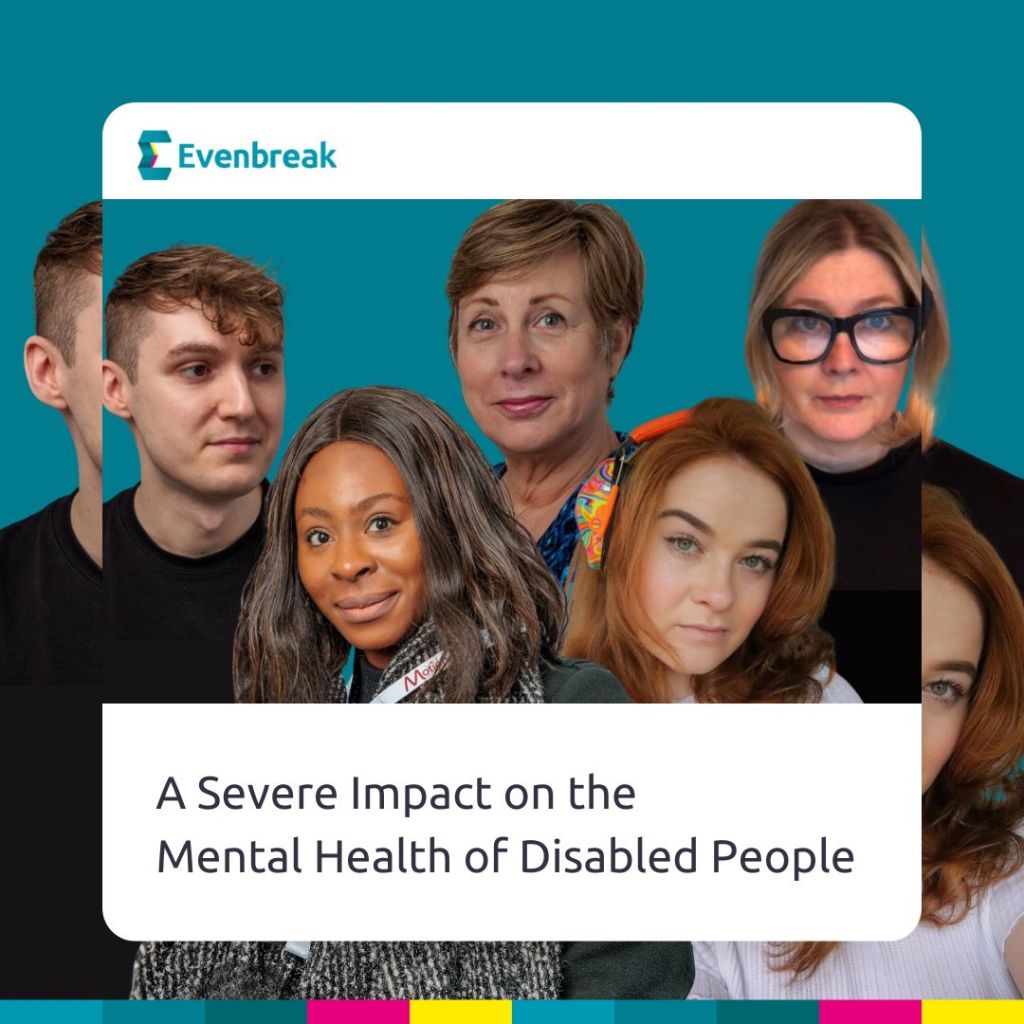
In light of of Mental Health Awareness Week 2024, members of the Evenbreak team, all of whom have lived experience of navigating mental health, got together to discuss the effect the government’s proposed welfare changes will have on our mental health as disabled people.
This year, the UK government announced plans to strip away benefits from those with mental health conditions, in a move that we at Evenbreak called out as abhorrent. The Covid-19 pandemic has worsened mental health globally, with a 25% increase in depression and anxiety rates worldwide. One in four people will experience a mental health problem of some kind each year in England. For disabled people, government plans to slash benefits yet again is a direct attack on our mental health.
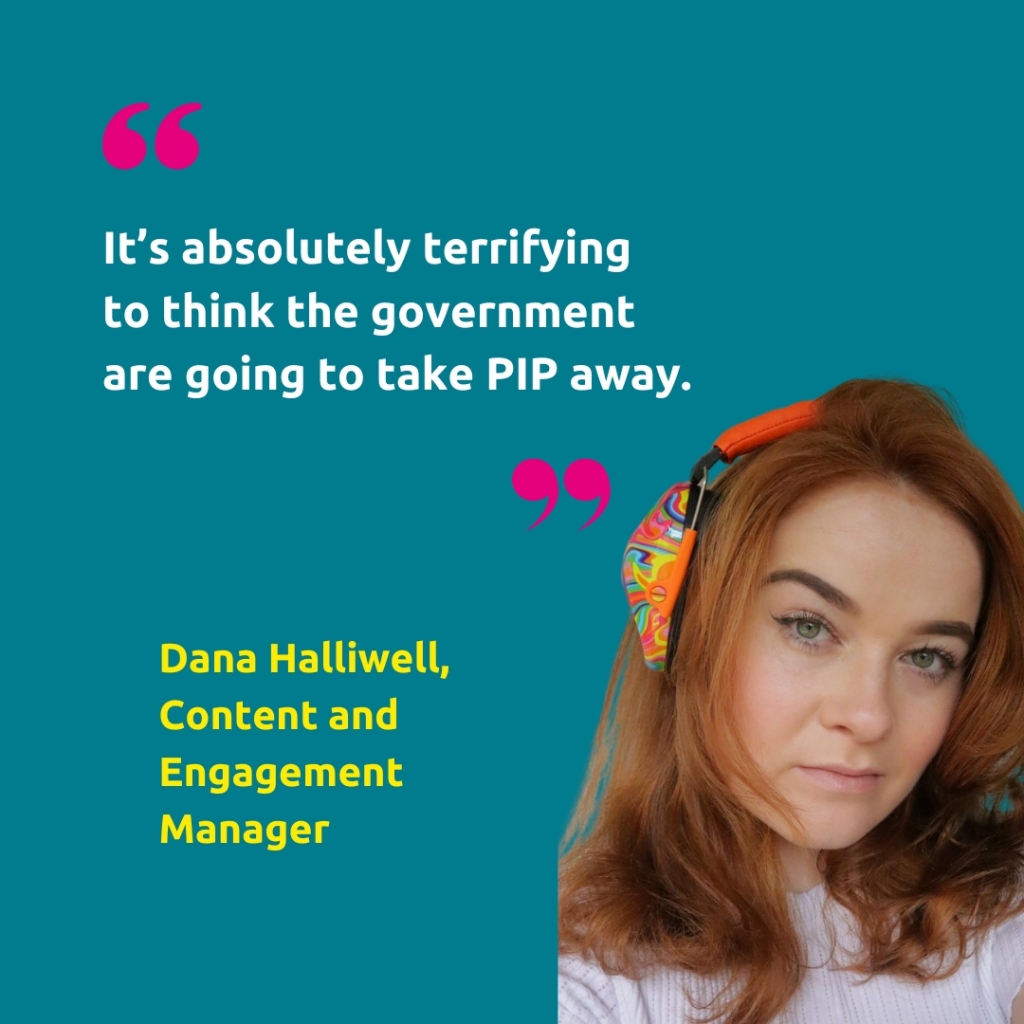
Firstly, from the sheer anxiety this news causes. Dana Halliwell, Content and Engagement Manager at Evenbreak: “I receive PIP (Personal Independence Payment) for OCD (Obsessive Compulsive Disorder), and as someone who has seen [the news] recently, the level of anxiety that I have now faced in the last month, especially because I am someone that receives the higher brackets for OCD, which is hard enough anyway to get. It’s absolutely terrifying to think [the government] are going to take PIP away.”
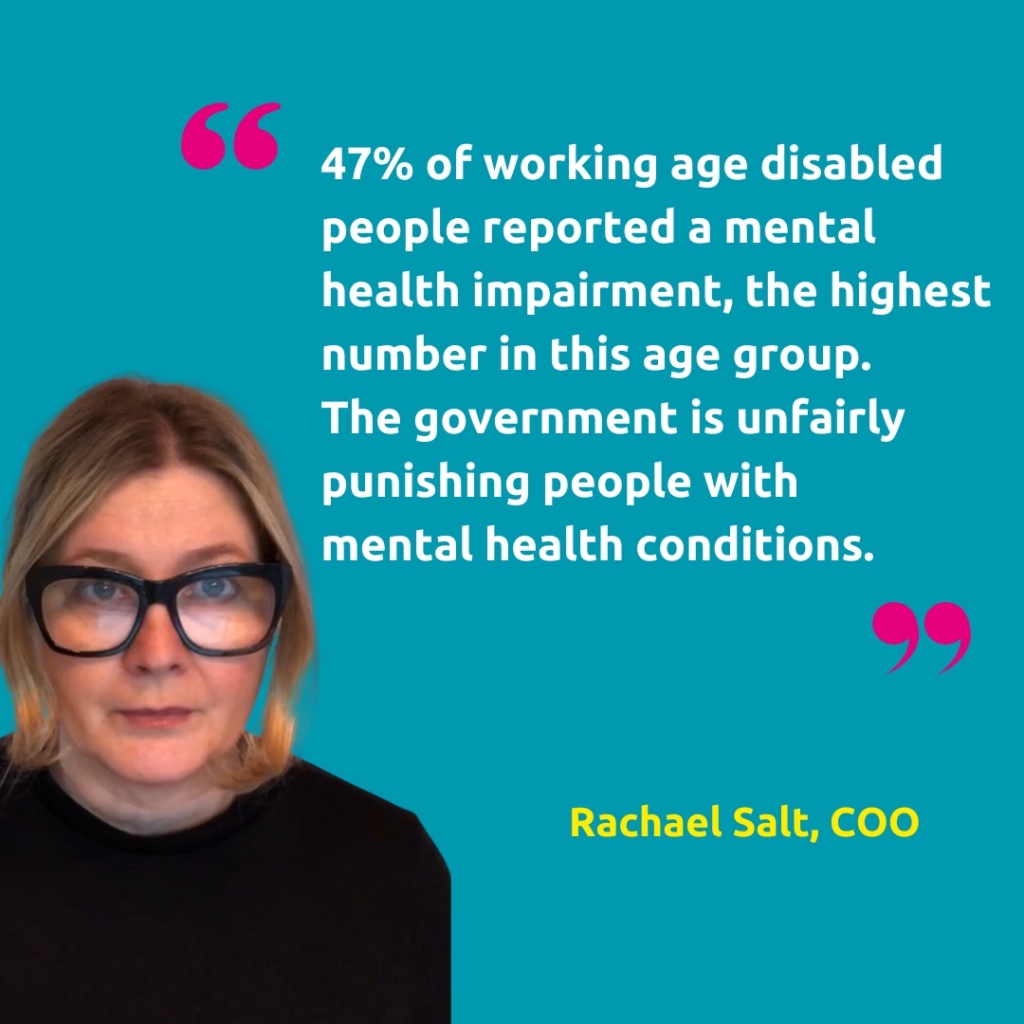
The next assault will be once the policies come into place and ordinary people’s lives are affected by a billionaire’s decisions. Disabled people are already disproportionately affected by mental health. Rachael Salt, COO at Evenbreak: “47% of working-age disabled people reported a mental health impairment, the highest number in this age group. [The government] is unfairly punishing people with mental health conditions.” Jane Hatton, CEO at Evenbreak, agrees. “We can’t talk about mental health without saying how much worse [the government] has made it. The proposed policies will have a severe impact on our community.”
Titilope Lucas, Communications Manager, highlights these impacts: “Only 8% of people with more serious mental health conditions such as schizophrenia and Bipolar can be in work. By taking away PIP, taking away benefits, what other options will there be left?”
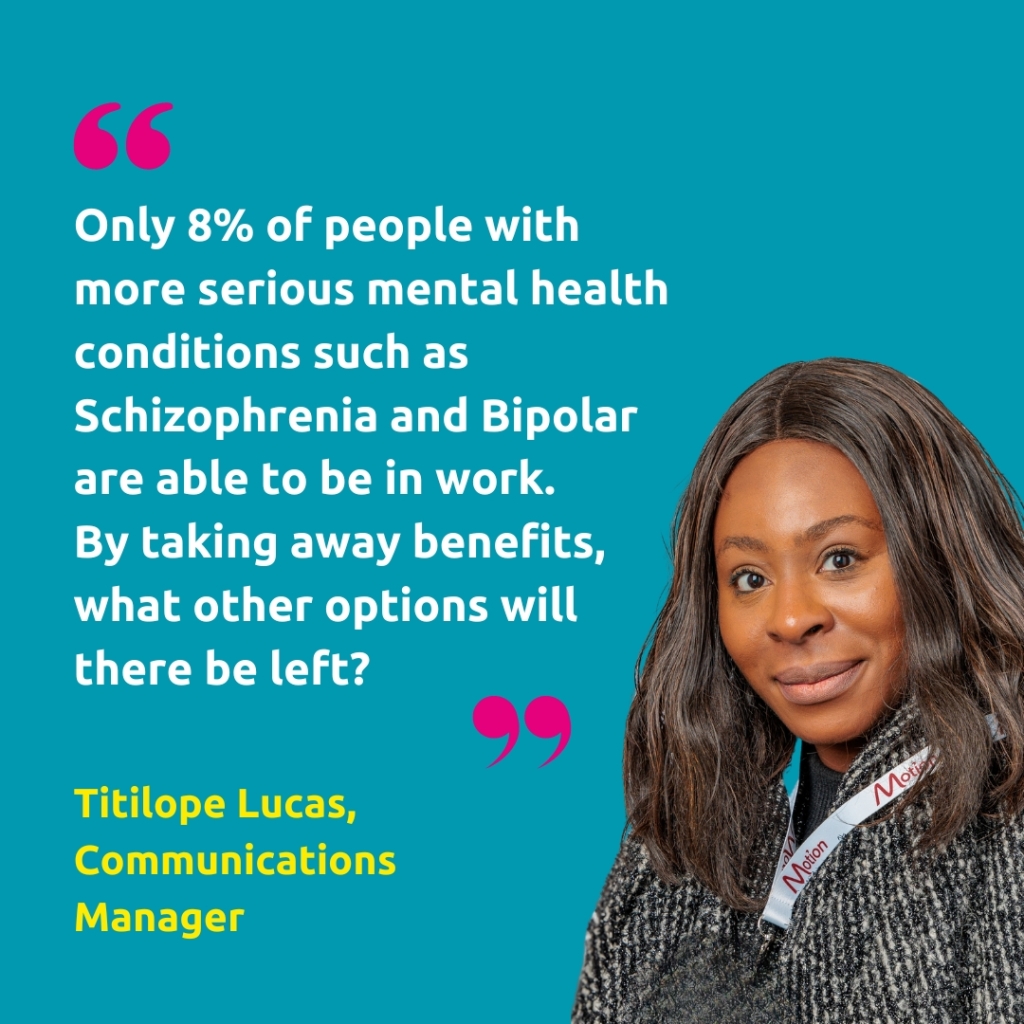
Over recent years, the stigma around talking about mental health has started to break down, with increased numbers of people feeling safe to be more open about how they feel. An explosion of wellness culture has in some ways been beneficial in introducing more people to therapy and self-care techniques, but in other ways, puts all the responsibility on individuals and therefore deflects from the external factors affecting us. Counselling and therapy are great techniques, but if they are not available on the NHS due to cuts and waiting lists, or out of reach to most people to pay for privately, these kinds of services are being denied, and affecting everyone’s wellbeing. A combination of direct policies from the government, the cost-of-living crisis, the housing crisis, and COVID-19, as well as structural inequalities, are no doubt responsible for the number of UK workers suffering from burnout or stress doubling in a year.
Charley Hullah, Content Creator: “It is flat out insulting for the general population even who, after having been through a pandemic of which there was no mental health support during or after – we are now being told we’re taking too many sick days or whatever it might be. We’ve all seen the state of mental health provision, and I think it speaks to privilege that they don’t see this as an issue. The cost-of-living crisis, housing, and bad wages will lead to worsening mental health in the population. That leads to time off work.”
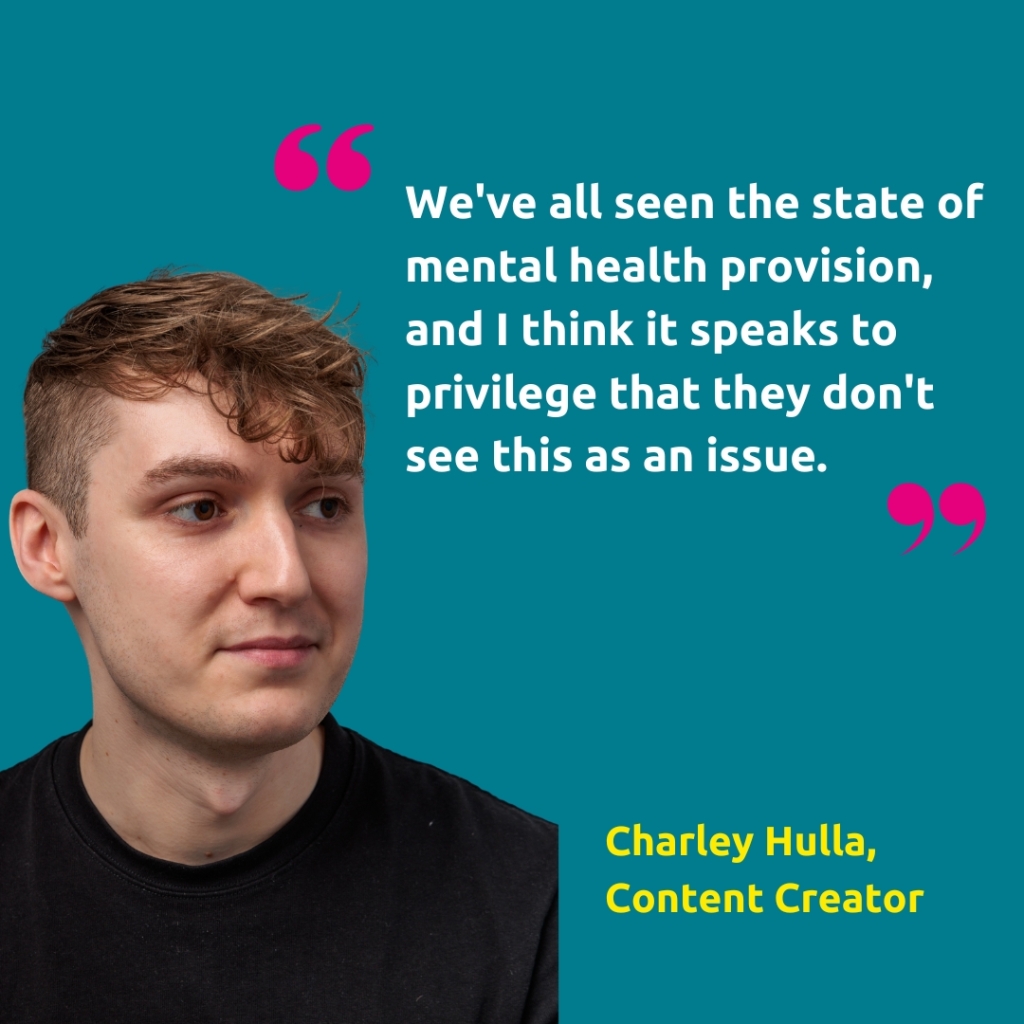
Jane Hatton, CEO: “The prevailing message the government is giving is that mental health is trivial. And it isn’t. My main lived experience is with chronic pain. I spent 7 years not being able to get out of bed. I had two years of that in severe depression. If I had to choose between being so chronically in pain that I can’t move, and having depression, I would choose the pain. It is not trivial. It is more disabling from a social model perspective than most other conditions because it affects every single part of your life. I think anyone who has not experienced it can’t understand the severity of its effect. Your mental health is more important than anything and can have such a devastating effect.”
Charley Hullah, Content Creator: ” I agree with Jane’s point re the weight of mental health, depression, and chronic pain. That’s taken such a tole on me. In my experience it’s been easier to deal with pain than it has for anxiety or depression because to be able to combat those you need in-person support and access to a regular GP. A prescription isn’t likely to go towards helping that.”
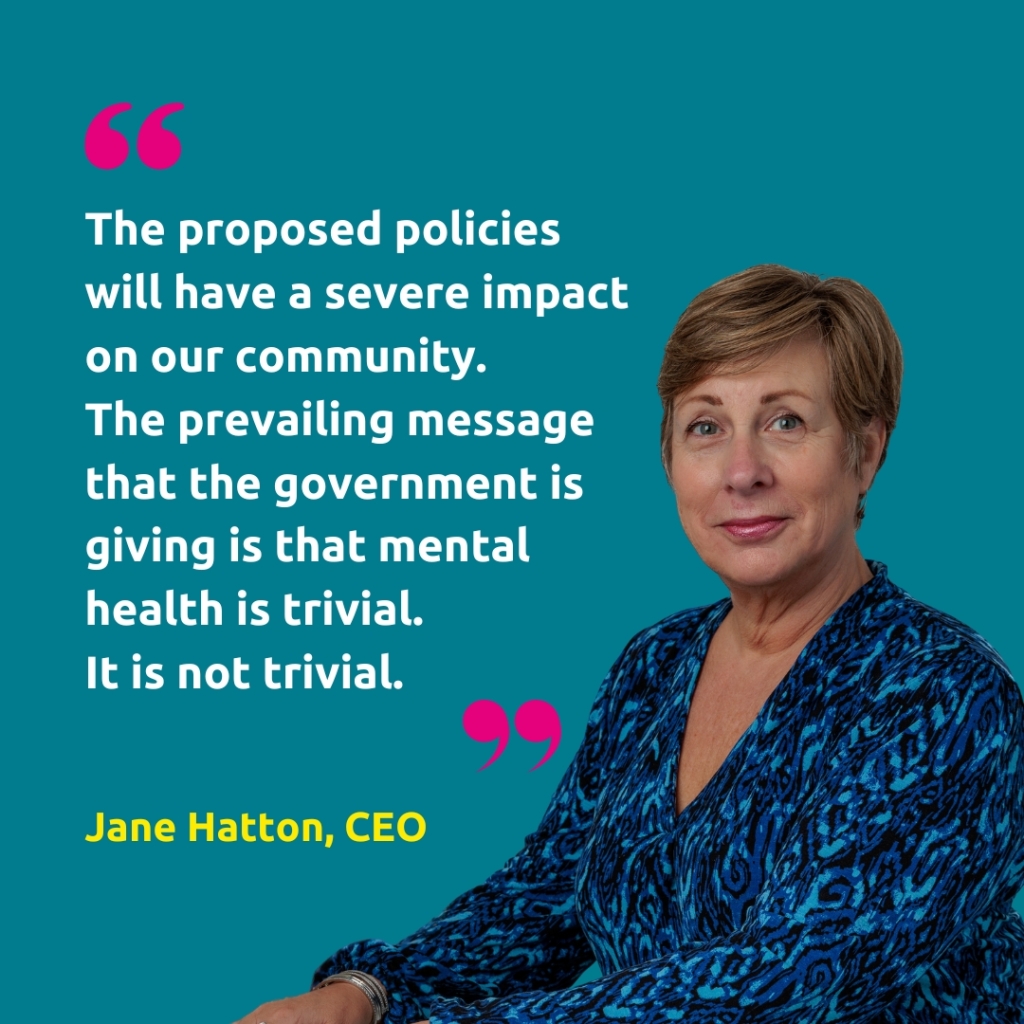
The proposed welfare changes in the UK represent a grave threat to the mental health of disabled individuals, compounding existing challenges and exacerbating societal disparities. Our first-hand accounts at Evenbreak underscore the profound anxiety and fear induced by the prospect of losing essential benefits. As advocates for disability rights and mental health awareness, Evenbreak reaffirms its commitment to supporting those affected, offering resources and solidarity.
If you are looking for support with mental health or money and finances, you can search for signposted organisations on our Career Hive.

Annie Hyde, Senior Marketing Coordinator

